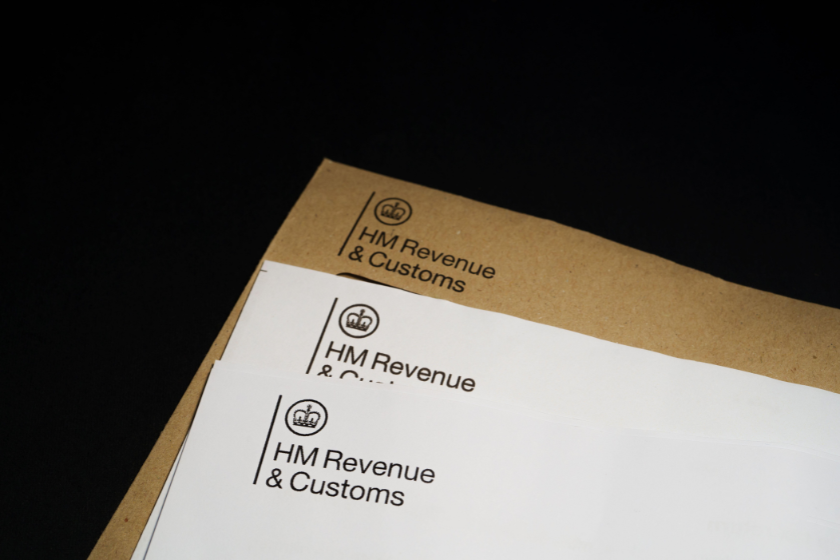£100 million money laundering conviction: Lessons for accountants
In 2022, Emirati national Abdulla Alfalasi was jailed for nine years, following a conviction for leading the biggest...
READ MORE
With enquiry activity increasing as HMRC pursues a £42 billion tax gap, and the department’s enquiry tactics changing to leverage more data and AI tools, a recent webinar discussed ways accountants can assist and protect clients.

During the COVID-19 pandemic, when the UK Government focused on keeping the economy afloat, HMRC’s enquiry activity was at a minimum.
However, now that a £42 billion tax gap has emerged – including £5 billion owed by SMEs – this activity is increasing.
In addition, the way HMRC conducts its enquiries is changing, with the use of data and AI replacing traditional methods.
At a recent IFA webinar, we invited experts to delve into what to expect, and how accountants can protect their practices and clients.
In this article, we summarise the key takeaways across four HMRC tactics:
HMRC is using Connect to improve targeting. This involves observing, monitoring, recording and retaining open-source data on the internet – including information from social media, merchant acquirers and other banks, building societies, property transactions, and the tax evasion hotline.
“This might trigger an investigation, if what the inspectors see out there in terms of lifestyle doesn’t tie into the accounts and returns submitted,” said Paul Rigney, Head of Sales, Vantage Fee Protect.
“If a client sits in front of a tax inspector, and says he’s been on holiday for one week in the past 12 months, chances are, if he’s posted on Facebook pictures of him and his family in Barbados, HMRC will have that information.”
Accountants can help their clients in three ways. The first is ensuring their tax information submitted to HMRC reflects reality. The second is bringing to their attention the multiple ways HMRC might gain insights into their lives..
“Bring it up, even if it’s only when you see them to sign their tax return,” said Anne Grundy, Senior Technical Claims Consultant, Vantage Fee Protect.
“When you’re going through your checklist, you might ask, ‘You’ve given us all this information. Have you thought about all the other bits and pieces?’ Information from social media is something you should be highlighting.”
The third is advising clients to ensure their social media privacy settings are appropriate.
Over the past five to 10 years, HMRC has recovered hundreds of millions of pounds via targeted campaigns.
For example, the Offshore Disclosure Facility campaign raised more than £512 million, while the Tax Health Plan campaign raised more than £95 million.
More campaigns are on the way, and, in addition, HMRC’s task forces are taking a more data-driven, streamlined approach. This includes:
Rigney suggests that the first task of accounting professionals whose client is treated to an unannounced task force visit is to bring calm to the situation – the client is likely to panic.
“Key advice is don’t panic – ask why the visit is required, and why it is necessary on an unannounced basis. [HMRC] must respond,” he says.
The client should also call their accountant immediately and, if possible, the accountant should attend.
Before admitting entry, it’s important to check identity cards, to ensure the visit isn’t fraudulent, and establish whether notice was issued by the Tax Tribunal, which would likely indicate a serious issue.
Further, the task force should remove only documents that are business-related, and the client should ask for a copy of the business review aide memoire.
“It was very rare for HMRC to pursue criminal prosecutions – it was always seen as the last resort,” said Rigney.
“If at all possible, they would always look to settle inquiries through a civil procedure.”
However, the number of criminal prosecutions initiated by HMRC is increasing year on year.
“It’s no longer a last resort. If HMRC feels that, in any way, shape or form, there is criminal behaviour, they will pursue a criminal route.”
Making Tax Digital (MTD) will commence in April 2026 for self-employed individuals and landlords who earn more than £50,000, and in April 2027 for those who earn more than £30,000.
MTD will require the keeping of digital records, as well as quarterly updates on income and expenditure to HMRC, via compatible software.
“The aim is to enable HMRC to carry out enquiries in greater detail, using information they hold ‘in year’, rather than waiting 18 months after the end of the accounting period,” said Rigney.
“They believe this will enable them to work more efficiently, with cost savings and improved yield.”
For clients, MTD will likely result in more ‘nudge’ letters, written and dealt with automatically. If a client has failed to declare, then the software will calculate any additional tax due, including interest, and the client will make payment.
“HMRC will have achieved that without any staff having done anything,” said Rigney.
“Some letters issued will be wrong – information that HMRC holds might have been incorrectly linked to your client’s file.”
So, if there are any doubts, then it’s important to cross-check.
“[Many people] think there isn’t much happening in tax at the moment,” said Rigney.
“But there’s a lot going on in the background, whether that’s HMRC increasing use of AI and data collection, the move to MTD or the regulation of the tax market.
“HMRC has tools at their disposal that make it more efficient and easier for them to look, so your clients are at greater risk of enquiry than ever before.”
Watch the full webinar:
The Institute of Financial Accountants holds regular CPD events online and in-person. The IFA Tax Series webinars feature expert speakers covering tax topics including R&D tax relief, business exits, basis period reform and more, across 24 CPD hours. Find out more and register.